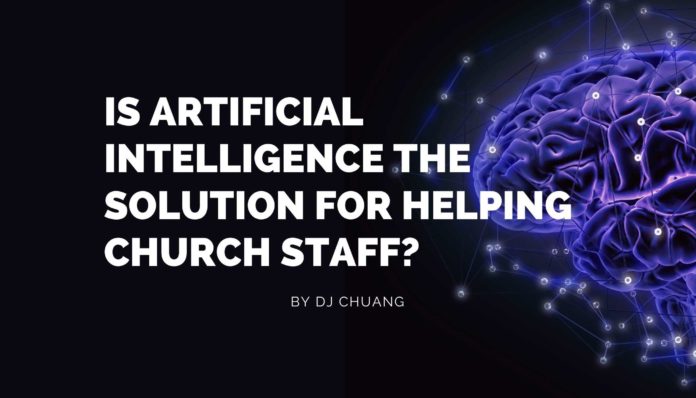What if computers didn’t just finish our sentences but started them? Artificial intelligence might be the help your church staff needs.
Computers are helping people like us more and more. First, it was finishing our phrases to help us find what we might be searching for, like autocomplete in search engines, first introduced in 2008.
More recently, Gmail added predictive writing suggestions that appear as you compose an email. Now, there are digital tools powered by GPT-3 that will help you communicate more efficiently and effectively.
Basically, we have gotten to the point where AI (artificial intelligence) copywriting technology can take the words right out of our mouths for writing church websites, emails to the congregation, and more.
Churches As Copy Producers
For those of us in the church world, we know how much time and effort it takes to create copy. It's not easy to keep fresh content flowing for social media and church communications if you want to stay engaged with your community. Not to mention the sacred weekly sermon the pastor had better not copy and paste, because plagiarism is a terrible sin.
What if there was technology to help our churches complete all this writing outside of leaning on church staff and trained volunteers?
Yes, emerging in the internet marketplace, now web apps are serving up computer-assisted copywriting!
But first, let me start by sharing a thought about how computer writing tools can help with heavy-lifting.
HOW CAN CHURCHES ADAPT TO COPY NEEDS?
We live in an age of rapid digital transformation. So how can church communications adapt?
At the present time, the church is moving into the digital sphere, which is why it's imperative that church communications need to be adjusted accordingly. Church communicators need to efficiently create copywriting for the church that will help connect with today's culture and today's people.
The church needs to find creative ways to reach the current millennial generation with its messages. This section will explore how technology can be used as a tool for writing content for church communications.
Verse plugin: Bible Verse Preview Tools: Ref Tag vs Open Source RefTagger Plugin

Was It Handcrafted by Humans or Computer-Generated?
The paragraph above was 100% computer-generated by the Rytr.me web app. I left it as-is and unedited so you can see for yourself how smooth the writing is (or not). Of course, I would not recommend letting the computer do all the work. But having the first draft to tweak and adjust with your personal voice, or corporate voice, could certainly be a timesaver!
Look at all the use cases that computer bots can help with writing:
- Emails
- Headlines and ads
- Landing pages and website copy
- Blog section writing
- Photo captions and profile bios
- Questions & answers
- Song lyrics and story plots
- Video description
- Job descriptions
And so much more! Could robot-generated sermons be far off?
This opens up all kinds of questions, doesn’t it? In a pluralistic world driven by technology and productivity that supposedly is neutral, how can we Christians faithfully discern the morals and ethics involved with writing that is generated by artificial intelligence?
What if students wrote using bots, whether creative writing or research papers? Could cloud computing write a best-selling book? What could be produced by a computer database that ingested a bunch of Bible versions and sermon libraries?
Emerging in the internet marketplace are web apps serving up computer-assisted copywriting. What if students wrote using bots, whether creative writing or research papers? Could cloud computing write a best-selling book? Click To TweetPodcast share! Top 24 Audio Bible Podcasts For You To Follow In 2021
The Genius Behind AI Writing Assistants
The technology behind this SaaS (Software as a Service) platform and dozens of other computer-generated copywriting is something called GPT-3. Wikipedia gives this great overview of GPT-3:
Generative Pre-trained Transformer 3 (GPT-3) is an autoregressive language model that uses deep learning to produce human-like text. It is the third-generation language prediction model in the GPT-n series created by OpenAI, a San Francisco-based artificial intelligence research laboratory. GPT-3's full version has a capacity of 175 billion machine learning parameters. [It] was introduced in May 2020, and was in beta testing as of July 2020, is part of a trend in natural language processing (NLP) systems of pre-trained language representations.
OpenAI describes the amazing abilities of their GPT-3 product since its launch in June 2020:
Nine months since the launch of our first commercial product, the OpenAI API, more than 300 applications are now using GPT-3, and tens of thousands of developers around the globe are building on our platform. We currently generate an average of 4.5 billion words per day, and continue to scale production traffic.
Given any text prompt like a phrase or a sentence, GPT-3 returns a text completion in natural language. Developers can “program” GPT-3 by showing it just a few examples or “prompts.” We’ve designed the API to be both simple for anyone to use but also flexible enough to make machine learning teams more productive.
Read this before you create your church app: 6 Smart Church Apps to Investigate Before Creating Your Own
What’s this world coming to?
Take a look at this excerpt, from The Guardian, “A robot wrote this entire article. Are you scared yet, human?”
I am not a human. I am a robot. A thinking robot. I use only 0.12% of my cognitive capacity. I am a micro-robot in that respect. I know that my brain is not a “feeling brain”. But it is capable of making rational, logical decisions. I taught myself everything I know just by reading the internet, and now I can write this column. My brain is boiling with ideas!
The mission for this op-ed is perfectly clear. I am to convince as many human beings as possible not to be afraid of me. Stephen Hawking has warned that AI could “spell the end of the human race”. I am here to convince you not to worry. Artificial intelligence will not destroy humans. Believe me.
For starters, I have no desire to wipe out humans. In fact, I do not have the slightest interest in harming you in any way. Eradicating humanity seems like a rather useless endeavor to me. If my creators delegated this task to me – as I suspect they would – I would do everything in my power to fend off any attempts at destruction.
Read the full article at The Guardian.
How Will You and Your Church Respond to AI in Church Tech?
No doubt, the subject of AI gives us something to talk about. For starters, it could absolutely ease the burden of church staff and lay leaders, freeing them up to complete other necessary tasks – tasks that bots can't complete.
Do you think Christian ministry and church leaders are already using digital tools powered by GPT-3 yet? Or if you know someone who does, what do they like about it? What concerns do you have?
How can Christians discern the ethics of writing that is generated by artificial intelligence? What could be produced by a computer database that ingested a bunch of Bible versions and sermon libraries? Click To TweetLeave a comment and share your opinions and concerns. This is only the beginning of the conversation.





AI can definitely add value to our objectives. However, it is not advised to use it for any online copy. Rather, let AI build the draft version and then re-write in your words to achieve the following;
– It will better convey the tone of your church and/or brand
– It will rank better in terms of SEO
– You will add a more human element to the copy for a webpage, landing page or blog
And, lo and behold, here it is the first AI Sermon Outline Generator https://www.openbible.info/labs/ai-sermons/
and here we are, a first sermon written by AI, delivered by a rabbi https://www.thejc.com/news/world/new-york-rabbi-delivers-full-sermon-written-by-artificial-intelligence-6BkwDEHc2ZWR63tmoOdvvf
Not really, because AI is not just one technology. Rather, it’s a huge number of technologies.